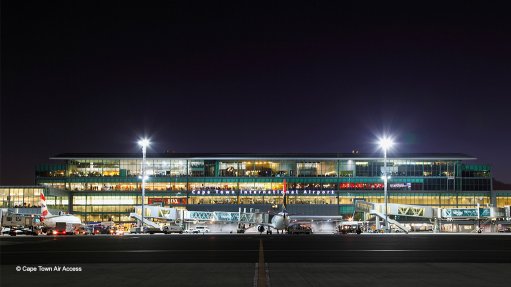Trade Facilitation Agreement
On February 22, the World Trade Organisation (WTO) celebrated the fifth anniversary of its Trade Facilitation Agreement (TFA), which entered into force when the WTO obtained acceptance of the TFA by two-thirds of its 164 members.
The TFA features commitments to expedite the movement, release and clearance of goods, including goods in transit. It also contains provisions to help developing and least-developed countries (LDCs) obtain technical assistance and capacity building to implement the TFA. WTO members, with the support of the WTO secretariat, will hold a TFA anniversary event later this year to take stock of the implementation progress and discuss further work. A belated birthday celebration, but then maybe there is not much to celebrate, or is there?
As of February 22, only 74.3% of TFA obligations had been implemented. The TFA is the first WTO agreement where developing countries and LDCs can determine their own implementation schedules and seek to acquire implementation capacity through the provision of the requisite assistance and support.
This brings into question the extent of the commitment – or is it involvement? This is reminiscent of the fable of the chicken and the pig, which is used to illustrate the differing levels of commitment by various stakeholders. In this fable, Chicken and Pig are walking down the street. Chicken turns to Pig and says: “You know, Pig, I was thinking, why don’t we open a restaurant?” Pig ponders the idea, and says: “Mmm, maybe, but what would we call it?” Without hesitation, Chicken answers: “How about Ham-n-Eggs?” Pig contemplated Chicken’s response, before answering: “Count me out. I would be committed, but you would only be involved.”
With respect to the 74.3% implementation of the TFA obligations, the implementation rate for each WTO member can be viewed in the WTO’s Trade Facilitation Agreement Database, which shows that South Africa’s current rate of implementation is 90.3% – for Category A, it is 90.3% and for Categories B and C it is 0%. As a reminder, WTO members are required to categorise the substantive provisions of the TFA into three categories. Category A contains provisions that a developing country member hast to implement upon the TFA’s entry into force, with implementation by LDC members required within a year. Category B provisions require implementation by developing country or LDC members after a transitional period following the TFA’s entry into force. Category C provisions require implementation by DC or LDC members on a given date after a transitional period following the entry into force of the TFA and allow for the acquisition of assistance and support for capacity building.
The database provides interesting insights into ‘Import, Export and Transit Procedures’, which relate to: Covid-19 measures; import, export and transit procedures; applied rates of duties and taxes; fees and charges; classification or valuation of products; rules of origin; restrictions or prohibitions; penalties; appeal or review procedures; agreements with other countries; and tariff quotas.
Those with more than a fleeting interest in the TFA might want to read the WTO’s 74-page report, ‘First Review of the Operation and Implementation of the Trade Facilitation Agreement’, for the period February 22, 2017, to October 31, 2021, which was adopted in November 2021. It states that human resources and training, assistance in amending laws or regulations or implementing new ones, and information and communication technologies are among the most common types of requests for technical assistance and capacity building filed by developing countries and LDCs. The report includes presentations by members on the trade facilitating measures they took to mitigate the Covid-19 crisis.
Visit the WTO’s Trade Facilitation Agreement Facility, accessible at www.tfafacility.org, to see the WTO members that are honouring their TFA implementation commitments. It was created primarily for LDC members to ensure they receive the assistance they need to benefit fully from the TFA.
Article Enquiry
Email Article
Save Article
Feedback
To advertise email advertising@creamermedia.co.za or click here
Announcements
What's On
Subscribe to improve your user experience...
Option 1 (equivalent of R125 a month):
Receive a weekly copy of Creamer Media's Engineering News & Mining Weekly magazine
(print copy for those in South Africa and e-magazine for those outside of South Africa)
Receive daily email newsletters
Access to full search results
Access archive of magazine back copies
Access to Projects in Progress
Access to ONE Research Report of your choice in PDF format
Option 2 (equivalent of R375 a month):
All benefits from Option 1
PLUS
Access to Creamer Media's Research Channel Africa for ALL Research Reports, in PDF format, on various industrial and mining sectors
including Electricity; Water; Energy Transition; Hydrogen; Roads, Rail and Ports; Coal; Gold; Platinum; Battery Metals; etc.
Already a subscriber?
Forgotten your password?
Receive weekly copy of Creamer Media's Engineering News & Mining Weekly magazine (print copy for those in South Africa and e-magazine for those outside of South Africa)
➕
Recieve daily email newsletters
➕
Access to full search results
➕
Access archive of magazine back copies
➕
Access to Projects in Progress
➕
Access to ONE Research Report of your choice in PDF format
RESEARCH CHANNEL AFRICA
R4500 (equivalent of R375 a month)
SUBSCRIBEAll benefits from Option 1
➕
Access to Creamer Media's Research Channel Africa for ALL Research Reports on various industrial and mining sectors, in PDF format, including on:
Electricity
➕
Water
➕
Energy Transition
➕
Hydrogen
➕
Roads, Rail and Ports
➕
Coal
➕
Gold
➕
Platinum
➕
Battery Metals
➕
etc.
Receive all benefits from Option 1 or Option 2 delivered to numerous people at your company
➕
Multiple User names and Passwords for simultaneous log-ins
➕
Intranet integration access to all in your organisation
















